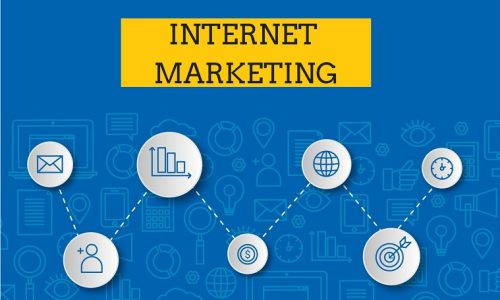
What Is Digital Marketing? Types, Skills, and Careers in 2025
- Editorial Team
- August 24, 2024
- Digital Marketing
- best web design agency in usa, Digital Marketing, Web Design Services
- 0 Comments
The Evolution of Digital Marketing(DM)
So, you’ve probably heard the term Digital Marketing thrown around a lot. But what does it mean? In the simplest terms, Digital Marketing(DM) is all about leveraging the internet and online-based technologies to promote products and services. This isn’t just about tossing up a website and calling it a day. No, it’s way more nuanced than that.
Digital marketing is the lifeblood of any business aiming to thrive in today’s tech-driven world. We’re talking about everything from Search Engine Optimization (SEO) to Social Media Optimization (SMO)—tools that help your business show up where it matters most: online.
Breaking Down the Types of Digital Marketing
Now, let’s break it down a bit. Digital marketing isn’t just one thing; it’s an umbrella term that covers a range of strategies. Here’s a quick look at the key players:
Search Engine Optimization (SEO)
If you’re looking to get found on Google—and who isn’t?—then Search Engine Optimization (SEO) is your go-to strategy. SEO is all about making your website more appealing to search engines. The better your SEO, the higher you rank in search engine results, which translates to more visibility and, hopefully, more business. Think of SEO as the backbone of your Marketing efforts. Without it, you’re pretty much invisible in the digital world.
Social Media Optimization (SMO)
Then there’s Social Media Optimization (SMO). In today’s social media-obsessed culture, being active and engaging on platforms like Facebook, Instagram, and LinkedIn is non-negotiable. SMO helps your brand stand out in the crowded social media landscape. It’s about more than just posting regularly—it’s about crafting the right content, using the right hashtags, and engaging with your audience in meaningful ways.
Email Marketing
Don’t underestimate the power of a good email. Email marketing is still one of the most effective digital marketing tools. It allows businesses to reach customers directly, deliver personalized content, and foster relationships that drive sales. Email marketing can be a game-changer, whether it’s a monthly newsletter or promotional offer.
Skills Required for a Career in Digital Marketing
Pursuing a career in DM requires a diverse skill set that spans both creative and analytical domains. If you’re thinking about diving into a career in DM, there are a few key skills you’ll need to master. Here are some essential skills you’ll need to succeed:
1. Analytical Skills: The ability to analyze data and draw actionable insights is crucial in digital marketing. You’ll need to interpret metrics like website traffic, conversion rates, and ROI to optimize campaigns. A great digital marketer knows how to crunch the numbers. Whether you’re analyzing website traffic data or social media metrics, being able to interpret and act on data is crucial
2. Creativity: Whether it’s content creation, social media posts, or ad campaigns, creativity is at the heart of digital marketing. Being able to think outside the box and create engaging content is vital. It’s not all about the numbers, though. Creativity plays a huge role in crafting compelling content, eye-catching visuals, and engaging social media posts. The best digital marketers know how to blend creativity with strategy.
3. Technical Skills: A solid understanding of SEO, PPC, and web analytics tools like Google Analytics is essential. Familiarity with basic coding and web design can also be beneficial. Finally, a solid understanding of the technical side of things—like website development, SEO, and SMO—is essential. You don’t need to be a coding genius, but knowing your way around a CMS (Content Management System) or understanding how Google’s algorithms work can give you a significant edge.
4. Communication: Strong written and verbal communication skills are needed to craft compelling messages and collaborate effectively with team members and clients.
5. Social Media Management: Knowing how to leverage social media platforms to build brand awareness and engage with your audience is a key skill in today’s digital landscape.
The Importance of Web Design in Digital Marketing
Your website is often the first point of contact between your business and potential customers. As such, web design plays a pivotal role in shaping the user experience and determining whether visitors will stay on your site or leave. A well-designed website not only looks professional but also functions smoothly, ensuring that users can easily find the information they need.

Key Elements of Effective Web Design
Effective web design is about more than just aesthetics. It involves several key elements that work together to create a user-friendly and visually appealing website:
- Responsive Design: In today’s mobile-first world, your website must be accessible on all devices, from desktops to smartphones. Responsive design ensures that your site adapts to different screen sizes, providing an optimal viewing experience for all users.
- User Interface (UI) and User Experience (UX): A well-designed UI is intuitive and easy to navigate, while a positive UX ensures that users have a satisfying and seamless experience on your site. Together, these elements create a website that is both functional and enjoyable to use.
- Website Structure: A clear and organized website structure makes it easy for users to find what they’re looking for. This includes well-defined categories, logical navigation, and a clean layout.
- Visual Design: The visual elements of your website, such as color schemes, fonts, and images, should align with your brand identity and create a cohesive look and feel.
The Connection Between Web Design and SEO
A strong web design not only enhances the user experience but also contributes to better SEO performance. Search engines like Google prioritize websites that offer a great user experience, which means that factors like page load speed, mobile-friendliness, and easy navigation can all impact your search rankings.
Additionally, well-structured websites with clear headings, descriptive URLs, and optimized images make it easier for search engines to crawl and index your content. This, in turn, improves your chances of ranking higher in SERPs, driving more organic traffic to your site.
Combining Digital Marketing and Web Design for Maximum Impact : To truly succeed online, businesses need to combine the power of digital marketing with effective web design. This combination ensures that your website not only attracts visitors but also converts them into loyal customers.
Career Opportunities in Digital Marketing
The great thing about Digital Marketing is that it offers a wide range of career opportunities. Whether you’re interested in content creation, data analysis, or social media management, there’s likely a role for you.
The demand for professionals has skyrocketed as businesses recognize the importance of a strong online presence. Here are some career opportunities in this field:
1. SEO Specialist: If you have a knack for keyword research and love diving into analytics, a career as an SEO Specialist could be right up your alley. You’ll be responsible for improving your client’s search engine rankings, driving traffic to their websites, and ultimately, boosting their bottom line.
2. Social Media Manager: Are you a social media junkie? Why not get paid for it? As a Social Media Manager, you’ll oversee a brand’s social media presence, crafting posts, engaging with followers, and developing strategies to grow the audience.
3. Content Marketing Manager: Develops and implements content strategies to attract and engage target audiences. If writing is your thing, content marketing could be the perfect fit. As a Content Marketer, you’ll create valuable, relevant content designed to attract and engage a target audience.
4. PPC Specialist: Manages pay-per-click advertising campaigns on platforms like Google Ads and Bing Ads.
5. Email Marketing Specialist: Designs and executes email marketing campaigns to nurture leads and convert them into customers.
6. Digital Marketing Manager: Oversees all aspects of a company’s digital marketing strategy, including SEO, content marketing, PPC, and social media.
7. Web Analytics Specialist: Analyzes website data to track performance, user behavior, and campaign success.
8. Affiliate Marketing Manager: Manages affiliate relationships and ensures that affiliate programs are successful.
9. UX/UI Designer: Focuses on creating user-friendly and visually appealing interfaces for websites and apps.
You can upload your resume at Best Web Design Company
How to Get Started in Digital Marketing
Thinking of starting a career in Digital Marketing? First things first—get educated. There are tons of online courses, certifications, and workshops available that can help you get up to speed.
Remember, Marketing is always evolving, so staying up-to-date with the latest trends and tools is key.
Best Webmaster Tools for Digital Marketing
In the digital marketing landscape, having the right tools is essential for monitoring, optimizing, and improving website performance. Webmaster tools are among the most critical resources for achieving these goals. They provide valuable insights into various aspects of a website’s health, SEO, user experience, and more. Below are some of the best webmaster tools that every digital marketer should consider using.
1. Google Search Console
Google Search Console is one of the most popular and widely used webmaster tools. It provides comprehensive data on how your website is performing in Google search results. Key features include:
- Performance Reports: Track clicks, impressions, average position, and CTR for your website.
- Index Coverage: Monitor which pages are indexed and identify any issues preventing indexing.
- URL Inspection: Check the index status of individual pages and request indexing.
- Mobile Usability: Identify and fix issues affecting mobile users.
- Sitemap Submission: Submit sitemaps to ensure Google can crawl your site efficiently.
2. Bing Webmaster Tools
While Google dominates search, Bing Webmaster Tools is a valuable resource for those looking to optimize for Bing’s search engine. It offers similar features to Google Search Console, including:
- Search Performance: Monitor your site’s performance on Bing, including clicks, impressions, and keyword rankings.
- SEO Reports: Get detailed SEO reports and recommendations.
- Backlink Data: Analyze backlinks pointing to your website.
- Keyword Research: Discover new keyword opportunities and optimize your content accordingly.
3. Ahrefs Webmaster Tools
Ahrefs Webmaster Tools is a powerful SEO tool that provides in-depth insights into your website’s backlinks, keywords, and overall SEO performance. It offers:
- Site Audit: Identify and fix on-page SEO issues.
- Backlink Analysis: Get detailed reports on backlinks, including quality and referring domains.
- Keyword Rankings: Track your keyword positions and discover new ranking opportunities.
- Competitor Analysis: Analyze your competitors’ strategies and compare your site’s performance.
4. SEMrush
SEMrush is an all-in-one digital marketing toolkit that includes comprehensive webmaster tools. It’s ideal for those looking to manage SEO, content marketing, and competitor analysis in one platform. Key features include:
- Site Audit: Perform a complete audit of your website to identify technical issues.
- Keyword Research: Discover new keywords and track your rankings.
- Backlink Audit: Analyze and manage your backlink profile.
- Position Tracking: Monitor your rankings on a daily basis and compare them to competitors.
5. Moz Pro
Moz Pro is another excellent tool for digital marketers focused on SEO and website optimization. It offers:
- Site Crawl: Identify and fix technical SEO issues.
- Keyword Explorer: Find and prioritize the best keywords to target.
- Rank Tracking: Monitor your site’s ranking for specific keywords.
- Link Explorer: Analyze your site’s backlinks and those of your competitors.
6. Screaming Frog SEO Spider
Screaming Frog SEO Spider is a website crawler that helps you identify technical SEO issues that could affect your site’s performance. It’s particularly useful for:
- Crawling Large Sites: Efficiently crawl websites with thousands of pages.
- Broken Links: Identify broken links and redirects.
- On-Page Analysis: Extract key on-page elements such as titles, meta descriptions, and headers.
- Duplicate Content: Find duplicate content issues that may impact SEO.
7. Ubersuggest
Ubersuggest is a user-friendly tool that provides insights into SEO, content marketing, and keyword research. It’s ideal for small businesses and marketers looking for a cost-effective solution. Key features include:
- Keyword Research: Discover new keywords and assess their difficulty.
- Site Audit: Conduct a thorough audit of your website’s SEO health.
- Content Ideas: Find content ideas based on popular topics in your industry.
- Backlink Data: Analyze your backlink profile and identify opportunities for growth.
Conclusion
Choosing the right webmaster tools is essential for effective digital marketing. Google Search Console and Bing Webmaster Tools are must-haves for monitoring search engine performance, while tools like Ahrefs, SEMrush, and Moz Pro provide advanced SEO and competitive analysis. Screaming Frog is perfect for technical audits, and Ubersuggest offers a budget-friendly option for keyword research and site optimization. By leveraging these tools, digital marketers can gain the insights needed to optimize their websites, improve SEO, and achieve better online visibility.
Ready to take your business to the next level with Digital Marketing? Contact us today at +91 7240001666 or email us at sales@scientificwebs.com. If you prefer, you can fill out our Quote page to get started.
Related Posts

Focus on Internet Marketing Strategy to Increase Your Reach and Visibility
- Editorial Team
- May 11, 2018
Internet marketing helps you to grow your business and understand market strategy. To make your ..

Importance of Instagram Marketing Strategy Now Days
- Editorial Team
- June 30, 2018
Social media marketing helps you increase your band’s awareness. And it is important for ..






















Leave A Comment